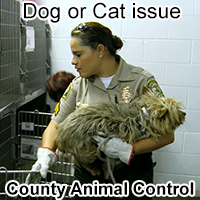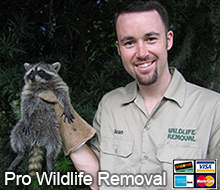- tucson@aaanimalcontrol.com
County Phone: 520-243-5900
Pima County Animal Services / Arizona AZ
Information about domestic and wild animal problems in Pima County
 If you need assistance with a domestic animal, such as a dog or a cat, you need to call your local
Pima County animal services
for assistance. They can help you out with issues such as stray dogs, stray cats, spay & neuter programs, vaccinations, licenses,
pet adoption, bite reports, deceased pets, lost pets, local animal complaints and to report neglected or abused animals.
If you need assistance with a domestic animal, such as a dog or a cat, you need to call your local
Pima County animal services
for assistance. They can help you out with issues such as stray dogs, stray cats, spay & neuter programs, vaccinations, licenses,
pet adoption, bite reports, deceased pets, lost pets, local animal complaints and to report neglected or abused animals.
Pima County Animal Services: 520-243-5900
REPORT WILDLIFE ISSUES: 520-243-5900 or 602-942-3000
To report a dead animal on the road, an injured bird, a lost baby squirrel, a dangerous bear, or anything like that, call any of these free government animal services:
- Pima County Animal Services: 520-243-5900
- Arizona Wildlife Commission: 602-942-3000
- Tucson police department: 520-791-4444
Critter Problem at Your House? Hire Tucson Wildlife Removal
Wildlife removal is not a free service.
 Pima County does not provide free wildlife control services. If you want to pay for critter removal
services, call Tucson Wildlife Removal at 520-867-4440. They provide professional wildlife control for both residential & commercial customers in the
city of Tucson. They offer custom Tucson wild animal control
solutions for almost any type of wildlife problem, whether
it be the noises of squirrels running through the attic, a colony of bats living in a building, or
the destructive behavior of a raccoon, they have the experience and the tools to quickly and professionally
solve your animal problem in Pima County in Arizona. Check their prices, and for a consultation, give them a call at 520-867-4440
Pima County does not provide free wildlife control services. If you want to pay for critter removal
services, call Tucson Wildlife Removal at 520-867-4440. They provide professional wildlife control for both residential & commercial customers in the
city of Tucson. They offer custom Tucson wild animal control
solutions for almost any type of wildlife problem, whether
it be the noises of squirrels running through the attic, a colony of bats living in a building, or
the destructive behavior of a raccoon, they have the experience and the tools to quickly and professionally
solve your animal problem in Pima County in Arizona. Check their prices, and for a consultation, give them a call at 520-867-4440

It is important to remember that most county animal services in Pima County and elsewhere no longer provide assistance in cases involving wild animals and wildlife
management. If you have a wildlife problem or need to get rid of wildlife, need an exterminator or exterminating company, pest control or critter trapping or traps or
wild animal prevention in Pima County, you should call a privately owned wildlife removal company at this number: 520-867-4440
Second in Arizona size to only Phoenix; Tucson has about half a million people and is located in the southern part of the state, 135 miles southeast of Pheonix. Tucson is surrounded by four major suburbs including Oro Valley and Marana, which are northwest of the city, and South Tucson and Sahuarita, which are to the south. Tucson is considered the longest inhabited area in the United States because archaeologists believe that it was originally the home of the Hohokam Indians back around 7000 BC. Today, Tucson is a great destination for people with arthritis and respiratory illnesses due to the very hot and arid climate. Another major attraction for tourists, is the Tucson Gem & Mineral Show. It is held every February and is one of the largest fine gem and mineral shows in the world, lasting an entire 3 weeks. Tucson is also rich in museums, art collections, performing arts centers, and sports centers. We also service the towns of Ajo, Cortaro, Sahuarita and also animal control in Mount Lemmon, Topawa, Vail and pest control in Oro Valley, Marana and wild animal services in Sells, Saddlebrooke, Green Valley and wildlife management in Rillito, Arivaca, Lukeville, Catalina.
Pima County Wildlife Removal Tip:
What's The Truth About Rodents Flying? - When people think about rodents invading their attic or homes they generally think of the ordinary grey rodent. However, flying rodents are also known to come into homes and since they prefer to live in a colony you can be sure that if you have one flying rodent you will, no doubt, have many more. Flying rodents differ from their non-flying rodent cousins in that they are nocturnal. This means that when conducting the necessary detective work prior to evicting the pests you will need to spend a few nights watching their comings and goings.Flying rodents are as difficult to get rid of as regular rodents and the only guaranteed way of doing so is by using traps - and then either humanely killing the animals or releasing them far away from your property in order to avoid them coming back in - which they will be desperate to do. Once rodents, flying or otherwise, find a warm, safe place to store their food and raise their young, they are extremely difficult to get rid of. You will need to either trap and remove them or exclude them from your attic, often both are necessary. If trapping and releasing make sure to do so far away from your home and check with laws regarding releasing flying rodents.
Pima County, AZ Animal Control News Clip:
Feral cats: big problem in TucsonThe metro area may have 100,000 untamed cats. Trap-neuter-return efforts counter overpopulation.
When Lizzy Twistine found two feral cats skirting her workplace in spring 2004, she did what more and more people in Tucson are doing: She caught them, got them "fixed" and returned them to where she caught them. "The little cats had been thrown away like trash," Twistine said. "It's heart-wrenching."
Metro Tucson has 100,000 feral cats, one shelter director estimated, though the numbers are difficult to quantify. That's one feral cat for every nine residents. Considering that in a year, a cat can have three litters of up to six kittens each, feral cats can be a major annoyance in a neighborhood and a lethal threat to pet cats. Free-roaming cats are more likely than indoor cats to carry rabies, because they prey on bats that may be infected, as well as other diseases, such as feline leukemia. Those diseases can be passed to pet cats.
Plus, Fluffy likely would be no match for an unfixed tomcat in a fight. Feral cats also are notorious for, among other things, urinating on and otherwise marking people's property. They can destroy gardens and kids' sandboxes by using them as outdoor litter boxes. And Wildlife and ornithology organizations believe these stealthy predators decimate bird populations. Pima County animal control says it will continue to help with domestic animal issues, but not with Arizona wildlife problems.
As co-owner of Animal Dudes Wildlife Rescue and Trapping Services, Flick Drummond says he most often chases feral cats around downtown and the Northwest Side. Last week, Drummond removed 50 feral cats from neighborhoods, back yards and streets at customer's requests.
Most of the felines he captures are euthanized at the client's request, although a few each month are trapped, neutered and returned. "It's a shame people don't take care of their pets," said Drummond, who has worked at Pima Animal Care Center for 22 years. Like Twistine, many people in Tucson are trying the trap-neuter-return method to control feral cat populations. But the Humane Society of Southern Arizona reduced its TNR program in April after slightly more than a year because it was overwhelmed with demand. The society still provides traps and training in how to use them, if you want to trap a feral cat and get it spayed or neutered elsewhere. But it does not accept feral cats. Pima County animal services in Tucson, Arizona, declined to comment on the matter.
Remember, for a dog/cat problem, call 520-243-5900, and if you need wildlife removal service in Pima County, call Tucson Wildlife Removal: 520-867-4440.




















